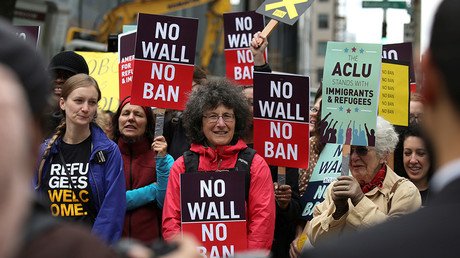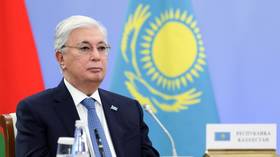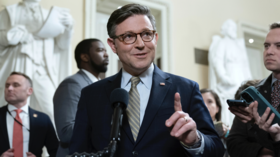Supreme Court to hear Trump travel ban case, allows part to go into effect
The US Supreme Court will hear arguments about President Donald Trump's proposed travel ban against foreign nationals from six majority-Muslim countries in their next term. In the meantime, people with no relationship with the US won't be able to enter.
The case will be heard "during the first session of October Term 2017,” as the government “has not requested that we expedite consideration of the merits to a greater extent,” the court said.
Foreign nationals from Iran, Libya, Somalia, Sudan, Syria and Yemen who have a "bona fiderelationship" with the United States ‒ such as a relative or a work or educational opportunity ‒ will still be able to enter the country.
A "bona fiderelationship" would mean “a close familial relationship” to qualify for the exemption, the court said. “As for entities, the relationship must be formal, documented, and formed in the ordinary course, rather than for the purpose of evading” the executive order. Such an entity could be an educational institution or a business that is hiring the foreign citizen.
A State Department spokeswoman told Reuters that the travel ban would be implemented "in an orderly fashion" in response to the Supreme Court's decision.
"We will keep those traveling to the United States and partners in the travel industry informed as we implement the order in a professional, organized, and timely way," Heather Nauert said Monday, adding, "We are also in contact with our partners in the implementation of the United States Refugee Admissions Program, and will keep them apprised of changes as they take effect."
Justice Clarence Thomas dissented in part, noting that he would grant the government’s request in its entirety and objecting to the court “keeping the injunctions in place with regard to an unidentified, unnamed group of foreign nationals abroad.”
The compromise will invite “a flood of litigation until this case is finally resolved on the merits,” Thomas wrote. His dissent was joined by two of his fellow conservatives on the bench, Justices Samuel Alito and Neil Gorsuch, who was appointed by Trump earlier this year.
The justices will hear arguments about the second iteration of Trump’s travel ban, which was issued in early March, after the first, harsher version was put on hold by multiple courts. The second executive order, which Trump has complained was “watered down,” was set to go into effect on March 16 for a 90-day review period, but was halted before that could happen.
In mid-June, the 9th Circuit US Court of Appeals upheld the majority of an injunction issued by US District Court Judge Derrick Watson in March. His injunction blocked the Trump administration from enforcing two sections of their revised travel ban. However, a three-judge panel of the 9th Circuit later concluded that the injunction was too broad.
The court granted the government’s application to stay the lower courts’ injunctions that prevent enforcement “with respect to foreign nationals who lack any bona fide relationship with a person or entity in the United States.”
“We leave the injunctions entered by the lower courts in place with respect to respondents and those similarly situated, as specified in this opinion,” the court wrote.
Or seems active, I should say. Interestingly enough - Afgans say people stopped getting visas ever since Trump's first ban attempt.
— Murad Gazdiev (@MuradGazdiev) June 26, 2017
The 9th circuit’s decision to stay the suspension of refugee admissions was also partly overturned, and narrowed to apply only to those who have a “bona fide relationship” to an American individual or entity.
“But when it comes to refugees who lack any such connection to the United States, for the reasons we have set out, the balance tips in favor of the Government’s compelling need to provide for the Nation’s security,” the court said.
Trump called the Supreme Court’s announcement a “clear victory for national security.”
“Today’s ruling allows me to use an important tool for protecting our Nation’s homeland,” the president said in a statement. “I am also particularly gratified that the Supreme Court’s decision was 9-0.”
Statement from @POTUS on Today's Unanimous Supreme Court Decision. pic.twitter.com/0TuHoRJzuT
— Sean Spicer (@PressSec) June 26, 2017
Two days after the 9th Circuit upheld much of the injunction, Trump had issued a memo to his secretary of state, attorney general, secretary of homeland security and director of national intelligence, instructing their agencies to begin internal vetting reviews and to activate the travel and refugee bans 72 hours after the injunctions are lifted.













